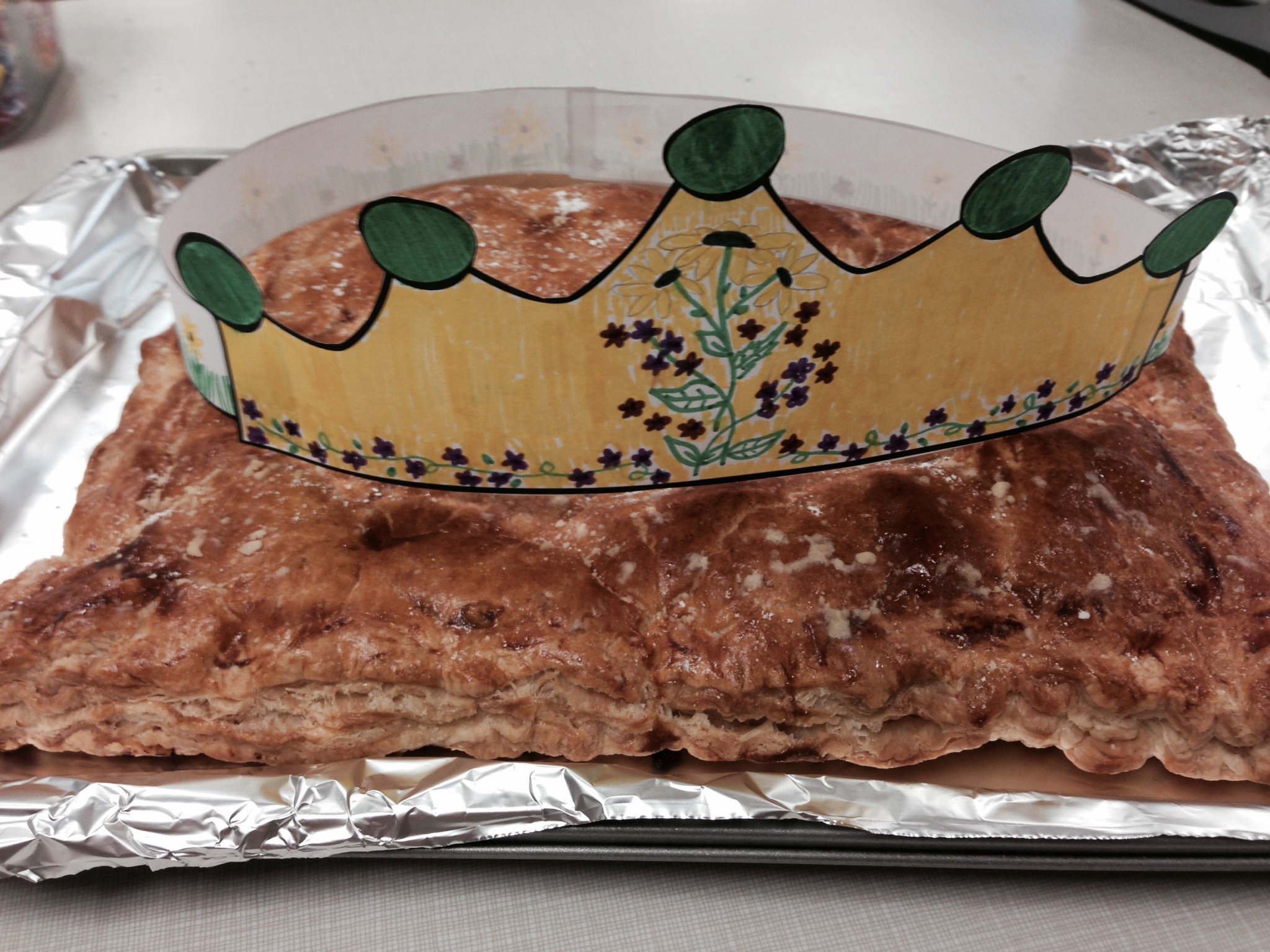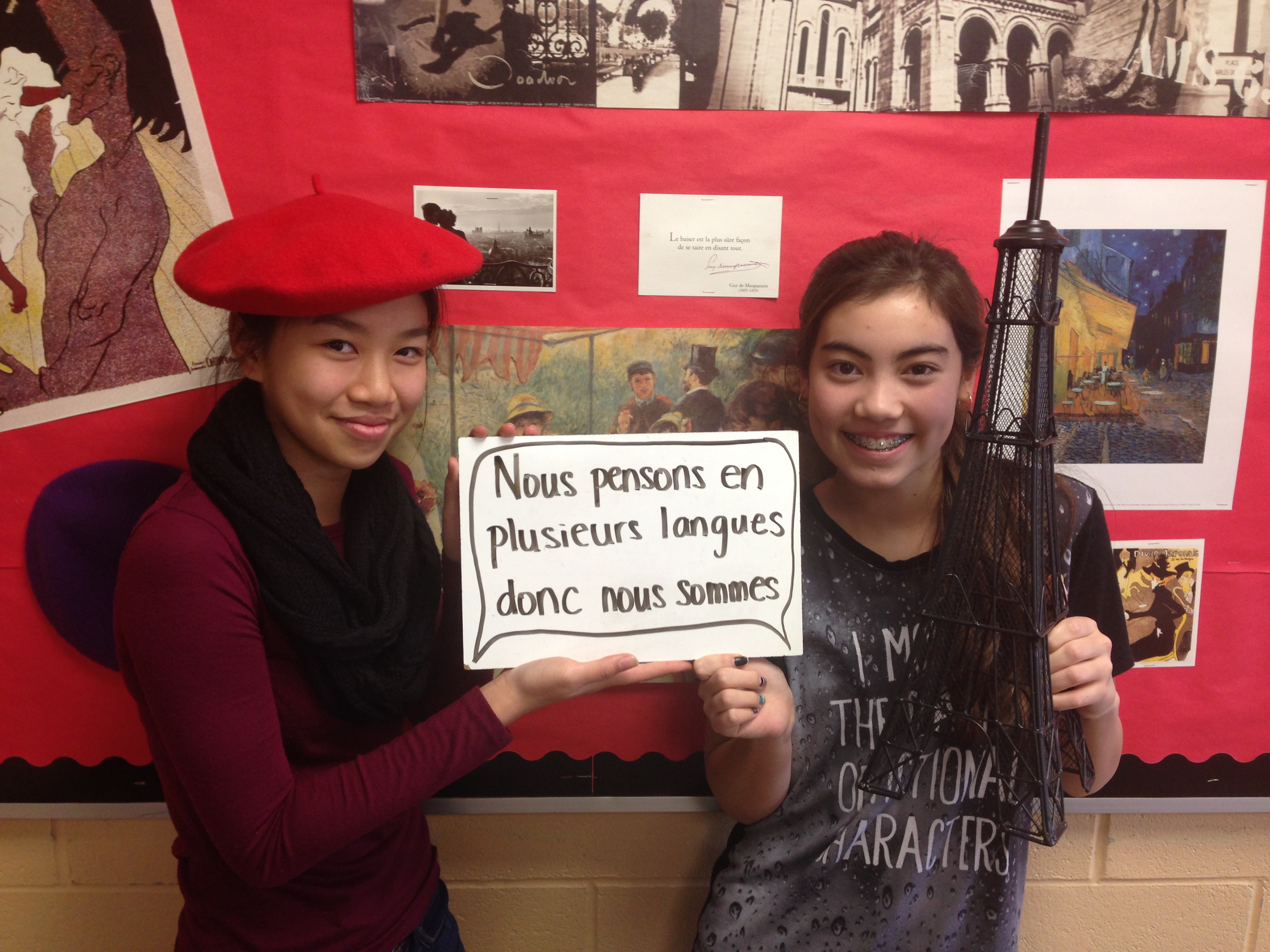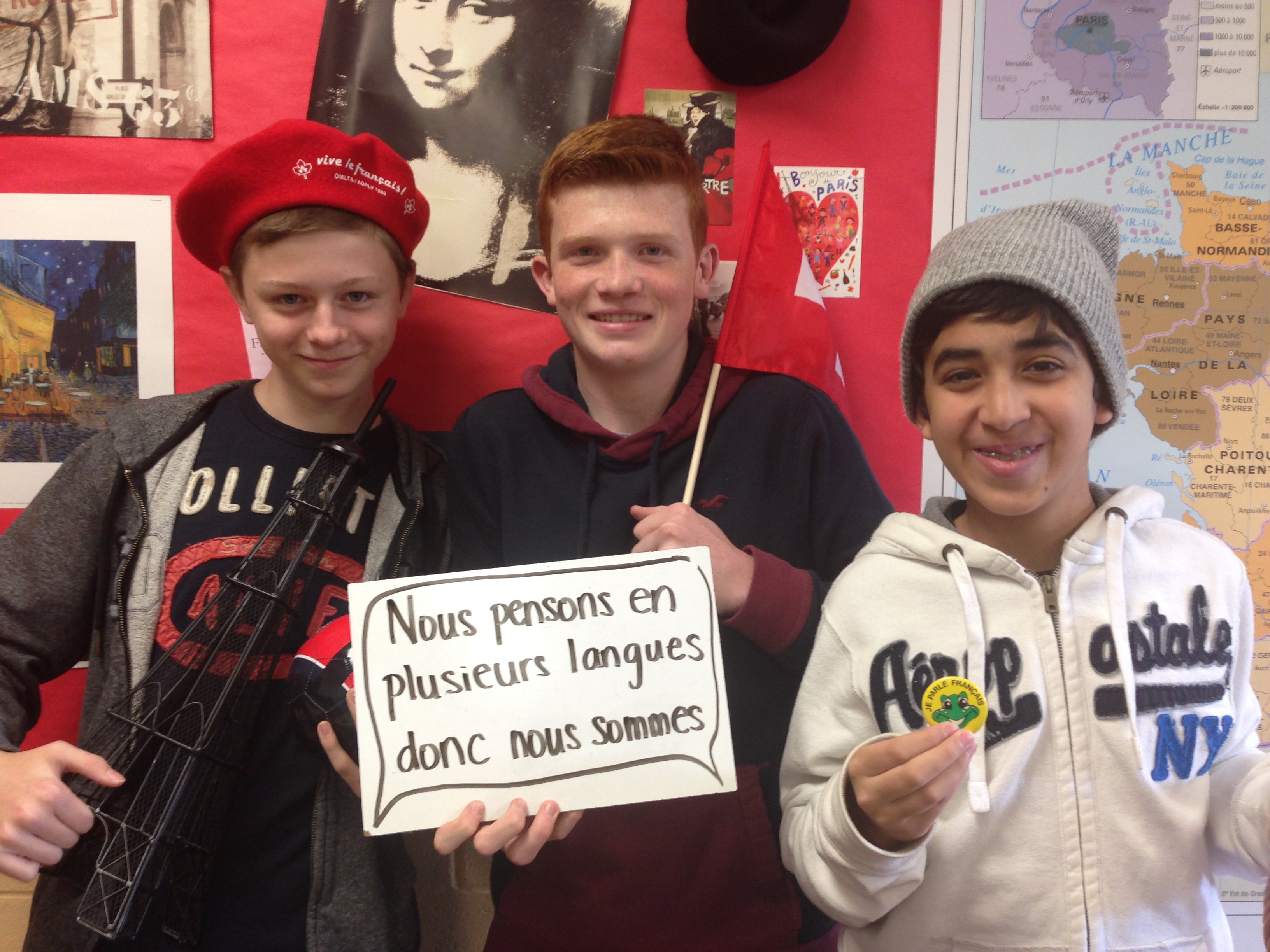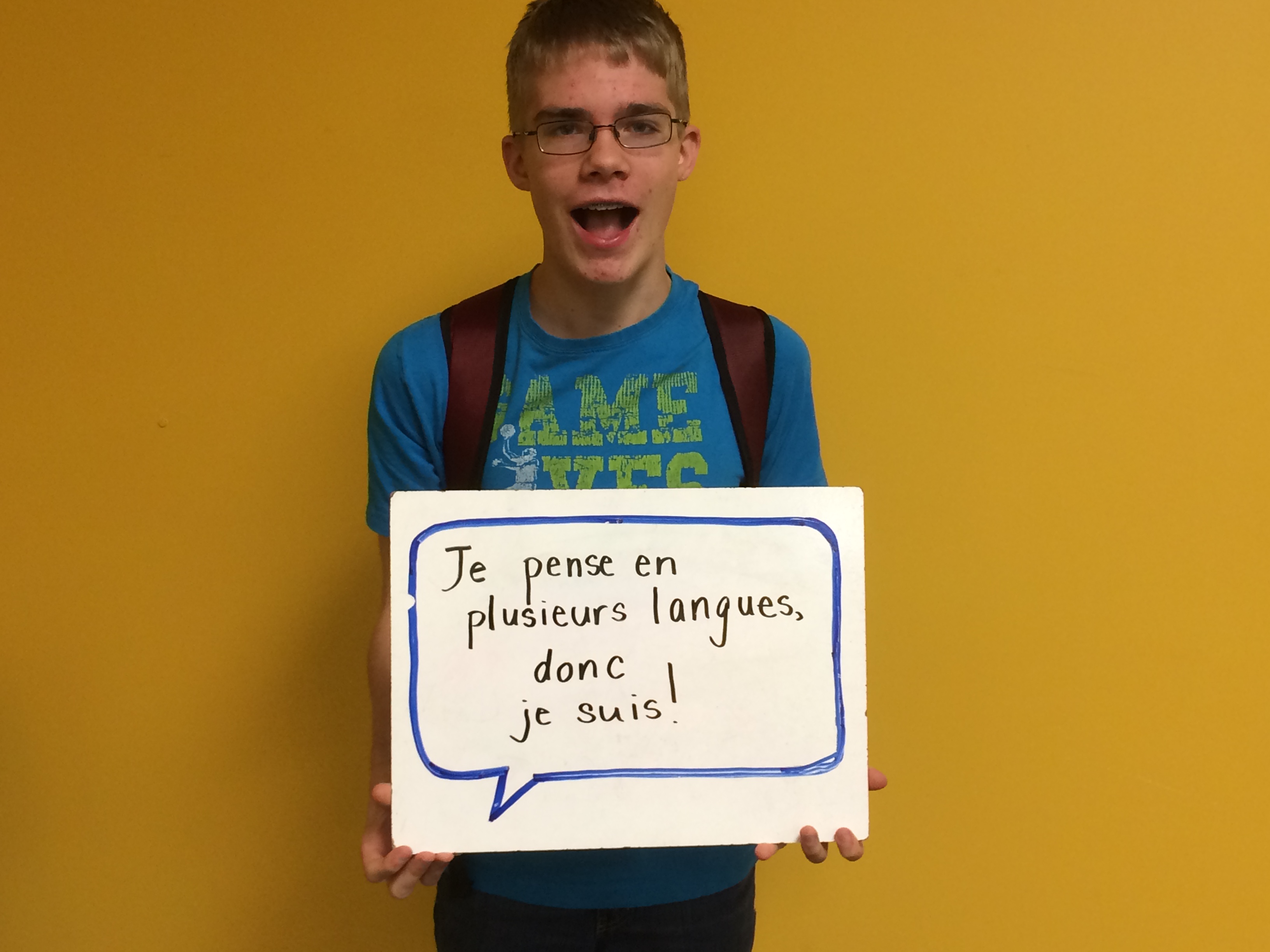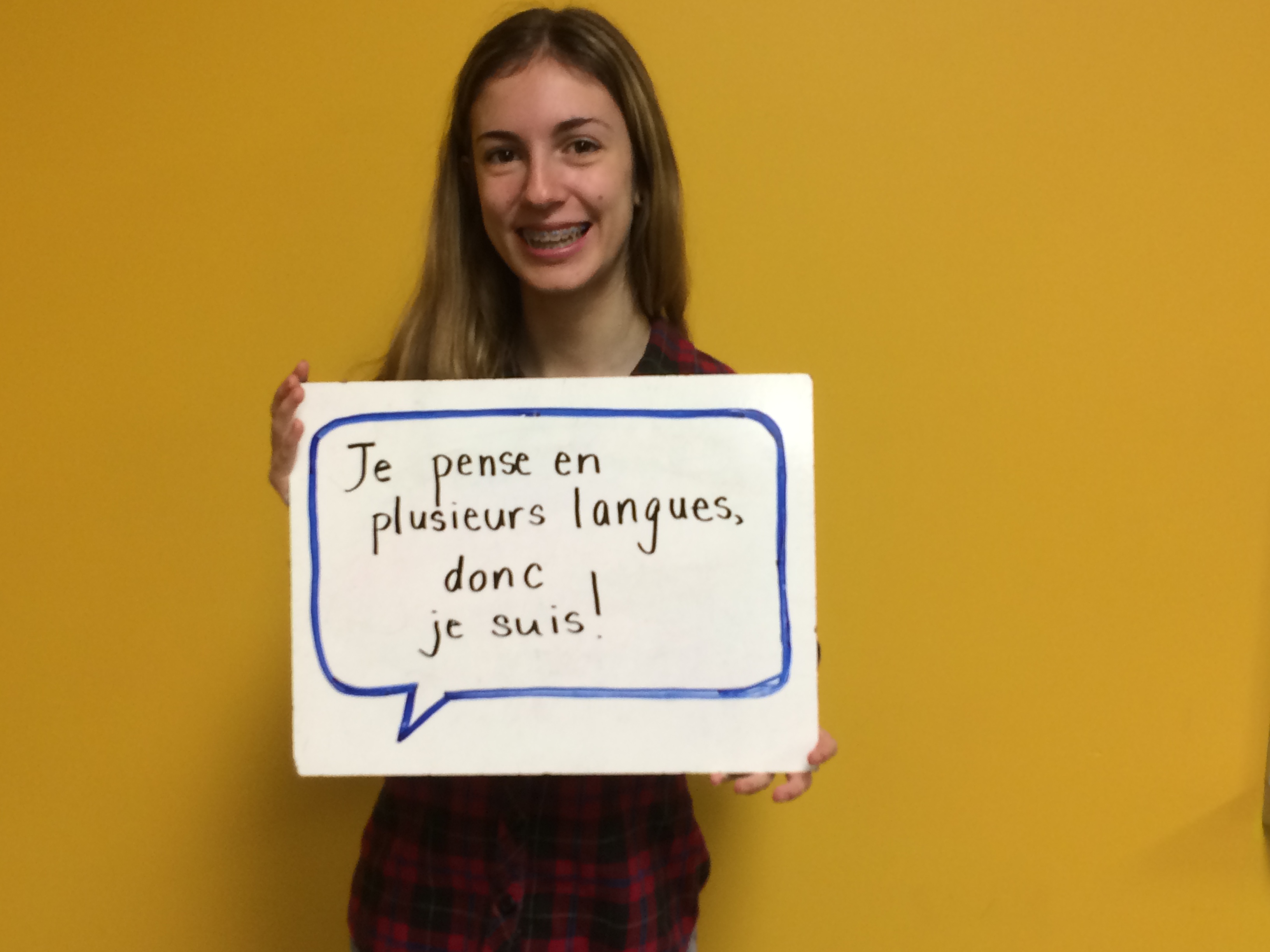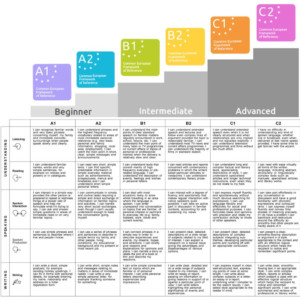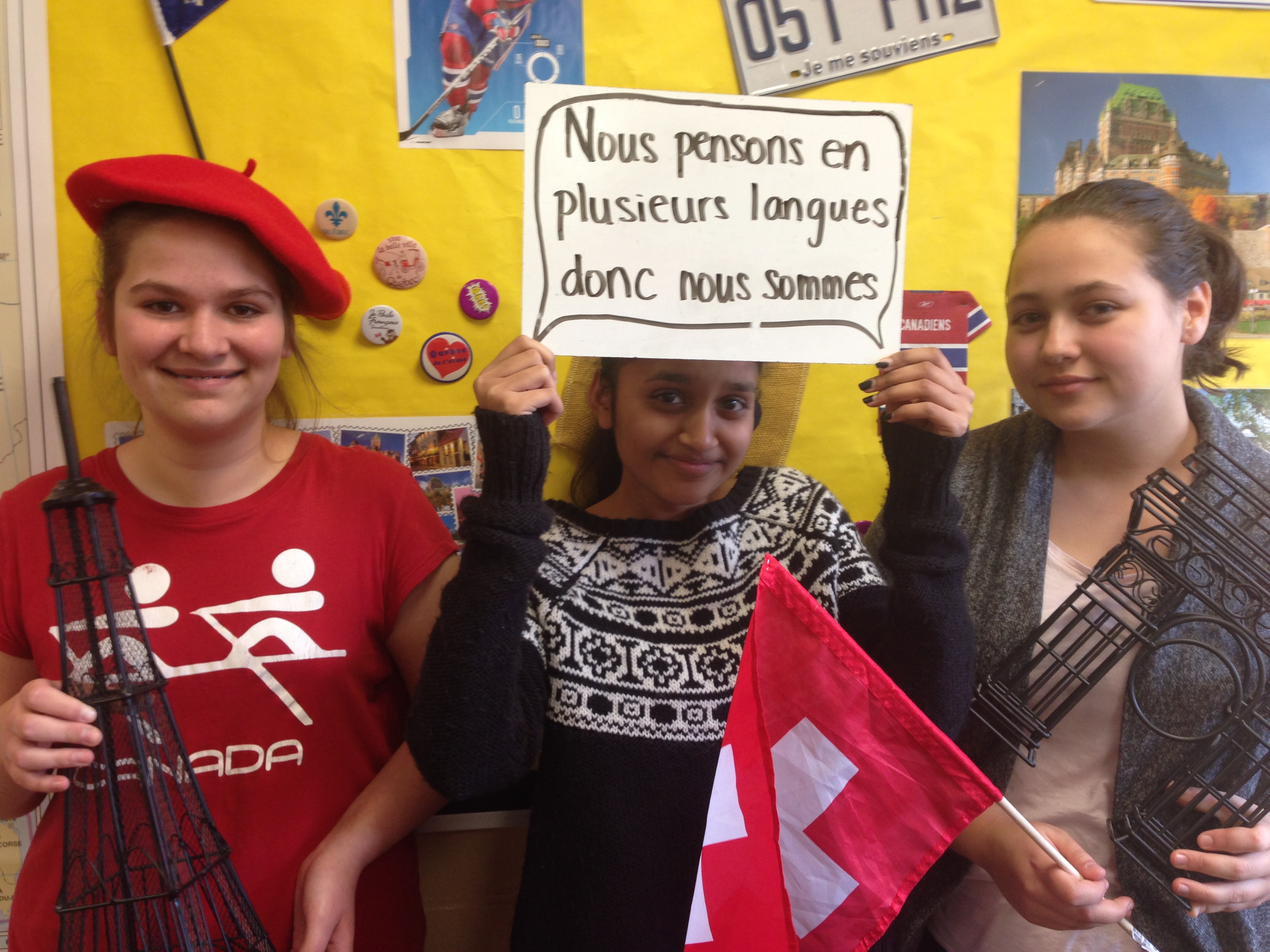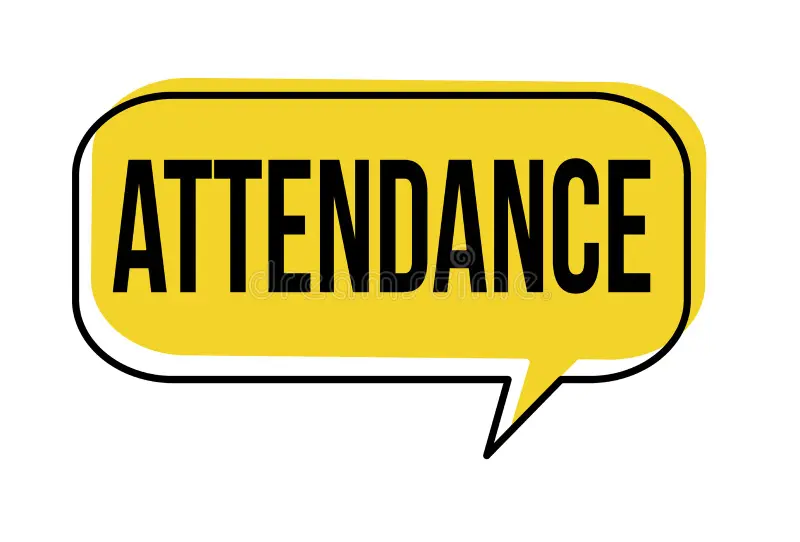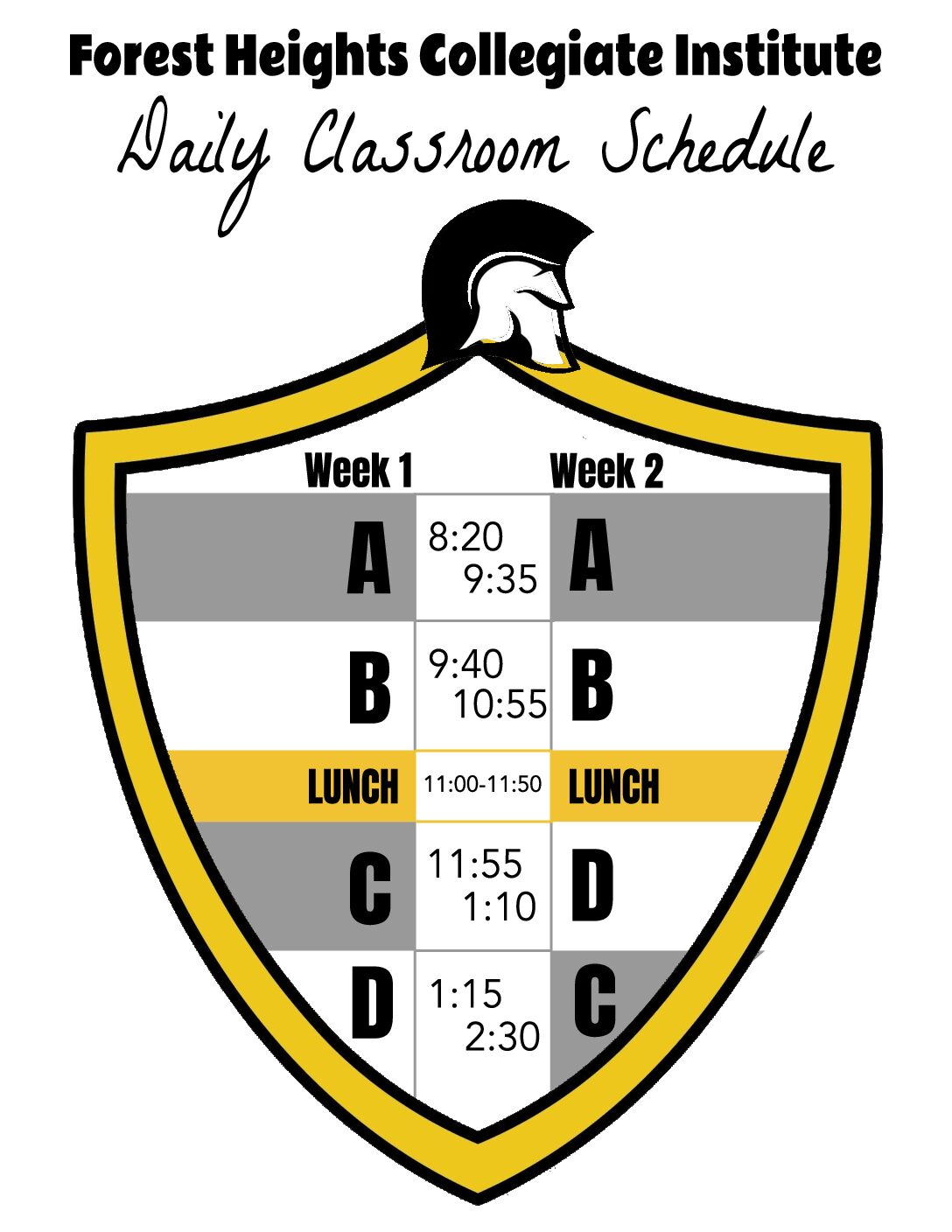
One language sets you in a corridor for life.
Two languages open every door along the way.Frank Smith
Overview
FHCI is pleased to offer the Extended French Magnet Program. During this program, learners continue to develop their French language proficiency in the domains of listening, speaking (prepared and spontaneous speech), reading and writing. Students develop a passion for and an appreciation of francophone culture around the world, as well as foster an interest in future language pursuits. Courses are taught entirely in French in dynamic, engaging and authentic settings. Learning is inspired by real-life experiences, including field trips, food, music, movies and games.
At the completion of the program, students receive an Extended French certificate and are well-prepared for post-secondary studies in French and to use their language skills in authentic situations such as work and travel.
Learning goals
In all French as a second language programs, students realize the vision of the FSL curriculum as they strive to:
- use French to communicate and interact effectively in a variety of social settings;
- learn about Canada, its two official languages, and other cultures;
- appreciate and acknowledge the interconnectedness and interdependence of the global community;
- be responsible for their own learning, as they work independently and in groups;
- use effective language learning strategies;
- become lifelong language learners for personal growth and for active participation as world citizens.
2014 Ontario Curriculum Grades 9 to 12 French as a Second Language, Core French, Extended French, French Immersion, page 6
Who can participate in the program?
The Extended French program is available to students who have completed grade 8 French Immersion and wish to continue their French studies in a challenging, immersed environment.
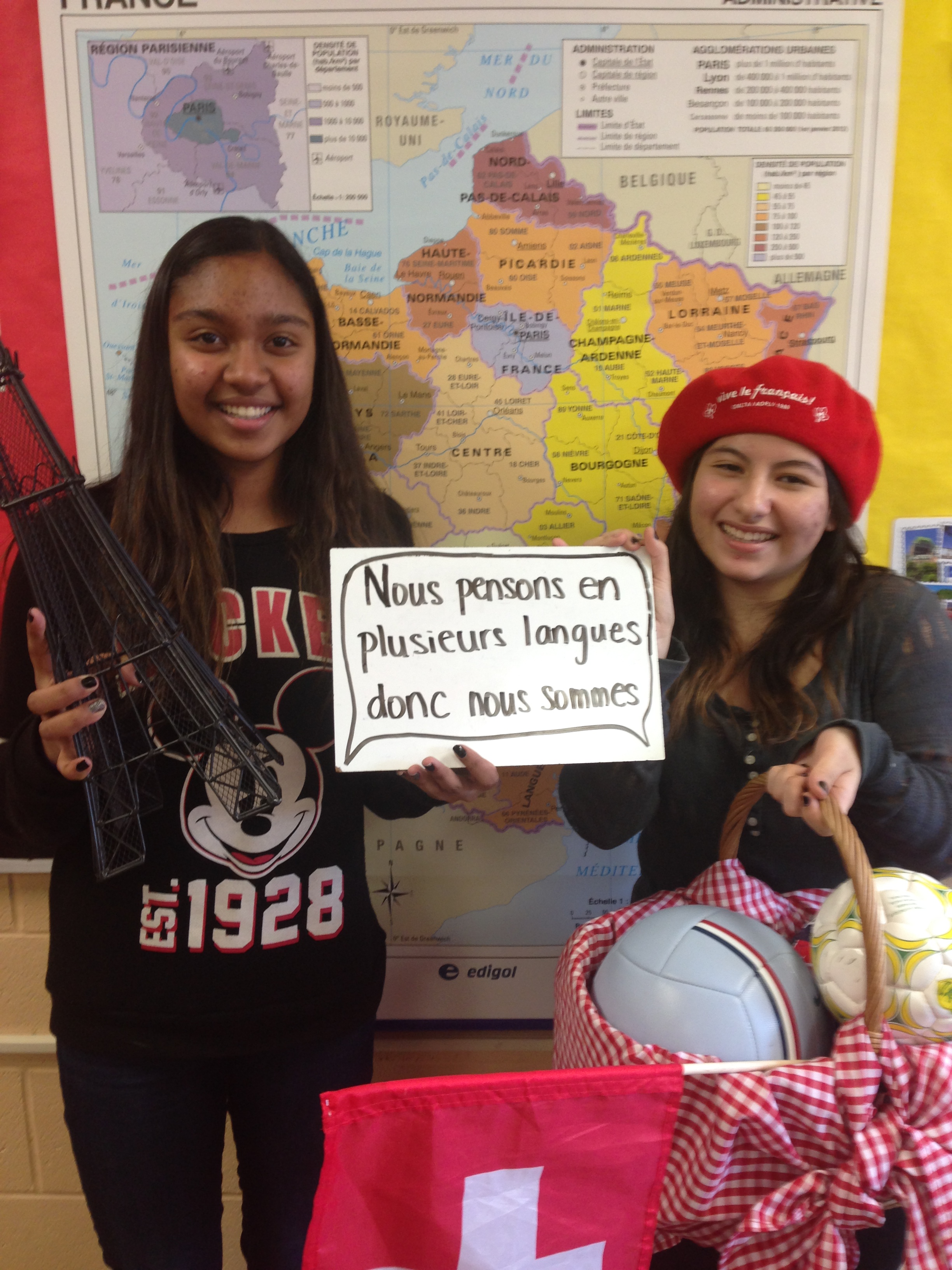

What are the program requirements?
The Ministry of Education requires that students complete 7 credits in the French language in order to fulfill the requirements of the Extended French program.
Extended French courses
Grade 9
- FEF 1DI Academic French Language Arts*
- CGC 1DF Géographie du Canada*
Grade 10
- FEF 2DI Academic French Language Arts
- CHC 2DF Histoire*
- GLC 2OF Orientation et formation au cheminement de carrière*
- CHV 2OF Citoyenneté et civismes*
Grade 11
- FEF 3UI University level French Language Arts
Grade 12
- FEF 4UI University level French Language Arts
*Required courses for a secondary school diploma
What is the difference between the Extended and Immersion French programs?
These two programs are taught precisely the same way, with instruction entirely in French and with the same expectations. For example, Grade 9 Extended French and Grade 9 French Immersion would have the same learning goals, expectations, requirements, etc. Both programs are a challenging continuation of students’ elementary French Immersion studies. Students are challenged to think critically and creatively and to express themselves clearly in the target language. The difference between these two programs is that the Extended program requires the completion of 7 French-language credits whereas the Immersion program requires the completion of 10 French-language credits. At the completion of both programs, students are well prepared for post-secondary studies in French as well as work and travel in French.
What enrichment opportunities are available to Extended French students at FHCI?
Enrichment opportunities include but are not limited to:
- Field trips: Elora crêperie and film excursion, Toronto French Theatre performance, Sablétine luncheon
- The Canadian Parents for French Concours d’art oratoire (Canada’s French Public Speaking Contest) *participation is mandatory for all Extended French students.
- Winter trip to St-Donat, Quebec to explore Québécois culture and heritage
- March Break trip to Europe (next trip: March Break 2018)
- CEEF (Canadian Education Exchange Foundation) 3-month and 1-month (summer) reciprocal exchange programs
- Explore 5-week French-language bursary program
What qualifications will I have when I graduate?
Upon completion of the Extended French program, students will receive an Extended French certificate. While this certificate is a proud achievement, FHCI Extended French students are encouraged to write the DELF (Diplôme d’études en langue française) “Scolaire” in order to receive internationally-recognized certification. This certification will be of great benefit to the students as they continue onto post-secondary studies, work and travel.
What is the DELF? Why should I write it?
The DELF (Diplôme d’études en langue française) is a certification of French-language abilities for non-native speakers of French and is administered by the International Centre for French Studies (Centre international d’études pédagogiques, or CIEP). It is composed of four independent diplomas corresponding to the first four levels of the Common European Framework of Reference for Languages (CEFR): A1, A2, B1 and B2. Above this level, the “Proficient User” divisions (C1, C2) are certified by the DALF. The “DELF Junior et Scolaire” is aimed at secondary-school aged students. DELF certificates are valid for life and do not expire.
The DELF examination consists of 4 parts:
- Listening
- Reading
- Writing
- Speaking
The DELF examination is based upon the CEFR (Common European Framework of Reference for Languages/Cadre européen commun de référence pour les langues or CECR, in French). The CEFR is an international standard for describing language ability. It is used around the world to describe learners’ language skills (see chart below).
The Common European Framework of Reference for Languages
Common European Framework of Reference for Languages: Learning, Teaching, Assessment
The CEFR explained: http://www.coe.int/t/dg4/linguistic/cadre1_en.asp
The CEFR document: http://www.coe.int/t/dg4/linguistic/Source/Framework_EN.pdf
The DELF explained: http://www.ciep.fr/en/delf-prim-delf-delf-junior-version-dalf-diplome-detudes-langue-francaise-diplome-approfondi-langue
The DELF “Junior et Scolaire” samples: http://www.ciep.fr/en/delf-prim-delf-delf-junior-version-dalf-diplome-detudes-langue-francaise-diplome-approfondi-langue/delf-junior-version
How does the Extended French program prepare students to write the delf examination?
The Extended French program is taught with the long term goal of writing the DELF, in mind. The Extended French program is taught using DELF-recognized materials, exercises, activities, assessments and evaluations. Students reflect regularly on their progress as it pertains to the “I can” statements of the CEFR and set appropriate goals for future achievement.
The DELF “Junior et Scolaire” examination can be written at the Waterloo Regional District School Board office in the spring of students’ grade 12 year. Students who complete both the Extended and Immersion French programs are prepared to write the same level of the DELF “Junior et Scolaire” examination: either level B1 or B2, depending on individual strengths.
Venez découvrir le monde francophone avec nous!







